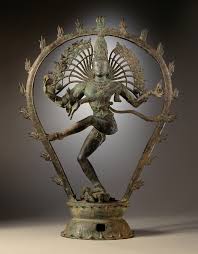Art and Culture
Indian Dance: Historical Traces
Harappan Culture The art of dancing may be traced back to Harappan culture. The discovery of the bronze statue of a dancing girl in tribanga posture testifies to the fact that some women in Harappa performed dances. Rig Veda The … Continue reading
Musical Instruments Based on How Sound is Produced
Tata Vadya These are the chordophones or string instruments that function best when their sound is modified by hand. Stringed Instruments are of three varieties: Bowed: The instruments where the sound is produced by drawing a bow across the strings. … Continue reading
Difference Between Hindustani Music and Carnatic Music
Points of Difference Hindustani Music Carnatic Music Influence Arab, Persian, and Afghan Indigenous Freedom Scope for artists to improvise. Hence scope for variations. Less scope for improvisation Sub-styles Several sub-styles lead to the emergence of ‘Gharanas’. Only one particular prescribed … Continue reading
Carnatic Music: Early Proponents
Annamacharya (1408-1503 CE) First known composer of Carnatic Music: He composed sankeertanas in praise of Lord Venkateswara, a form of Lord Vishnu. His compositions were mainly in Telugu. He is widely recognised as ‘Grandfather of Telugu Song-writing’. Purandara Dasa (1484-1564 … Continue reading
Styles in Hindustani Music: Ghazal
It is a product of Persian influence. It is composed of independent couplets. Though the theme of love is predominant, it also has elements of Sufism in it.
Styles in Hindustani Music: Tappa
It is believed to have been developed from the songs of camel drivers. It is noted for its quick turns of phrases. Poetry full of expressions of love and physical intimacy is the salient feature of Tappa. It was developed … Continue reading
Styles in Hindustani Music: Thumri
It is a light form based on the romantic-religious literature inspired by the Bhakti movement. It became famous under the patronage of Nawab Wajid Ali Shah. It employs folk scales, and the text of the songs is of primary importance. … Continue reading
Styles in Hindustani Music: Tarana
The structure consists of mainly melody, usually short, repeated many times, with variations and elaborations at the performer’s discretion. There is a second contrasting melody, usually with higher notes, which is introduced once before returning to the main melody. It … Continue reading
Styles in Hindustani Music: Khayal
The term Khayal has Persian origins and means ‘idea or imagination’. Its origin is attributed to Amir Khusro and Sultan Mohammed Sharqui. Khayal is a delicate and romantic composition. They were composed in the praise of Lord Krishna. It provides … Continue reading
Styles in Hindustani Music: Dhrupad
It is one of the oldest and grandest forms of Hindustani classical music and finds its mention even in Natyashastra. Dhrupad owes its roots to older forms like Prabhanda and Dhruvapada. Raja Man Singh Tomar of Gwalior and Emperor Akbar … Continue reading

